TRAINING "ENGINEER 57 "
Recently, a number of universities have signed a strategic human resource alliance to implement Resolution 57 with the belief that it will create a boost for the development of Vietnamese university education. The units participating in the agreement include: Ho Chi Minh National Academy of Politics, Academy of Cryptography, Hanoi University of Science and Technology, University of Technology - Vietnam National University, Hanoi and FPT University.
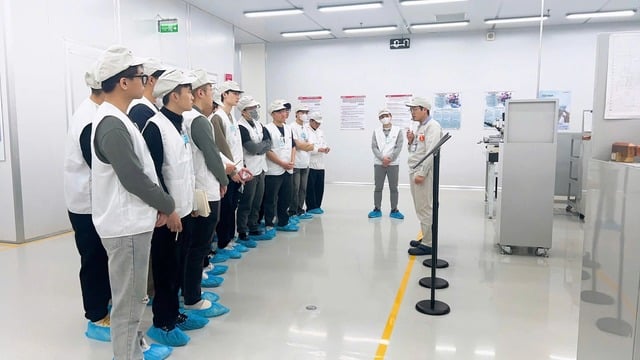
Students majoring in electronics and telecommunications at the University of Technology - Vietnam National University, Hanoi do business internships
PHOTO: AN KHANH
Dr. Le Truong Tung, Chairman of the Board of Directors of FPT University, called this an activity to implement the plan to train "57 engineers".
According to Dr. Le Truong Tung, in the context of rapidly changing science and technology (S&T), especially with the tasks set out in Resolution 57, universities need to be aware thateducation cannot continue to operate in the same way as 3-5 years ago. However, how the content of the training program needs to change to suit the new context is a question that does not have an easy answer.
Since Tet, FPT University has established a specialized team to answer the above question. As a result, a complete training program has been developed and officially deployed for students starting from Monday this week (May 12). Notably, the program is not only for final year students, but requires all IT students to study immediately after the first year - when they have basic technology knowledge - to be ready for early internships and participate in practical projects. This force can "join the game" at any time, with a scale of tens of thousands of people - that is the desire and commitment of the school. The school expects to complete the first training batch in August this year, and in 2025, Vietnam will have the first generation of "57 engineers", ready to participate in the national digital transformation journey.
Professor Chu Duc Trinh, Principal of the University of Technology - Vietnam National University, Hanoi, said that to develop the country, we now have only one way, which is to raise the level of Vietnamese people's work to higher levels in the global value chain. The Party and the State need a "popular education" in the digital age, so that all people have the opportunity to step up to higher levels in the modern labor value chain. Therefore, university students need to be more aware of the path of research and development, bringing science and technology into work. "You must understand that studying and transforming yourself today is not only to have a job, but also to have a job position with higher value and sustainability. I often tell students that they must try to study well, to graduate and have a good job with a high salary, not enough, but must have a high salary until retirement", Professor Chu Duc Trinh shared.
LACK OF QUALIFIED SENIOR AND MIDDLE LEVEL MANAGEMENT
According to Mr. Le Thanh Tung, member of the Board of Directors of VietinBank, the enterprise is actively implementing activities to apply science and technology, promoting the digital transformation process throughout the system. This is a vital requirement, not a trend. Because in a fiercely competitive environment like today, the slower you go, the more backward you become, even at risk of being replaced.
VietinBank, like other banks, is in dire need of qualified personnel in key areas of expertise in the digital transformation of the finance and banking sector, such as artificial intelligence (AI), data analytics, cloud computing, and cybersecurity. In terms of management and operational thinking, the current team lacks knowledge of modern methods such as Agile (a development method) and Design Thinking - thinking that is especially important in an environment of rapid innovation and transformation. The implementation of a digital banking model and a digital factory, which requires not only technological infrastructure but also appropriate human capacity, is also facing difficulties.
According to Ms. Pham Thi Ngoc Thuy, Director of the Office of the Private Economic Development Research Board (Board IV, under the Prime Minister's Advisory Council for Administrative Procedure Reform), when surveying businesses to make a report for the Government, the first thing that Board IV noticed was that businesses were lacking in human resources specializing in science and technology. In the story of emission reduction and green transformation, businesses face many difficulties because they do not have experts. Digital transformation is better, because Vietnam's IT workforce is quite abundant.
In particular, the private enterprise sector is in dire need of skilled senior and middle-level managers (lacking in depth of expertise in the field they manage). In the context of the current implementation of Resolution 57, the private sector labor market needs managers equipped with new skills and new thinking.
In the public sector, the situation is not much better. For a long time, we have placed the burden of digital transformation on the shoulders of the IT force, but now we see a serious shortage of a group specializing in restructuring business processes. They are officials in charge of professional expertise in state administrative agencies in different fields. This force is currently very lacking in the face of reform and restructuring requirements.
"In the near future, we will hear a lot of terms such as: "data-based management", "modernizing public administration", "people-centered"... These are things that we have to rely on data, on calculations to make decisions. But the question is, where do the human resources to do these things come from?", Ms. Thuy asked.
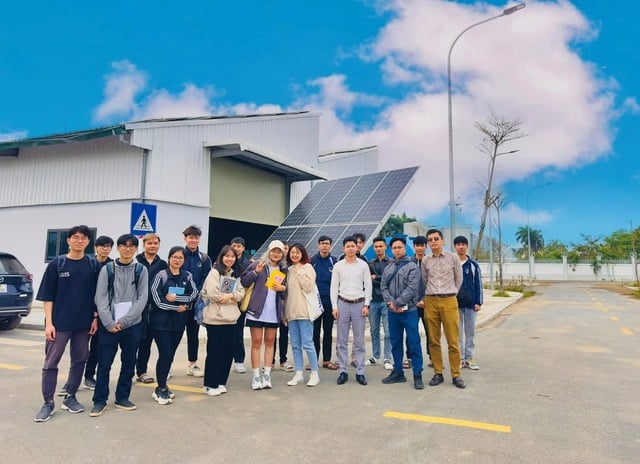
Several universities have signed a strategic human resource alliance to implement Resolution 57 with the belief that it will create a boost for the development of Vietnamese university education.
PHOTO: AN KHANH
What do businesses need from "ENGINEER 57"?
Mr. Nguyen Van Khoa, General Director of FPT Corporation, said that "engineer 57" needs to have legal thinking and understanding. "Previously, in the corporate environment, we only did what was beneficial and what the law required. However, we need to train them in depth in legal thinking and public administration standards. They can both study national defense and learn about "engineer 57", Mr. Khoa analyzed.
Next is systems design thinking. In the past, we focused on end users, but now we need to broaden our vision to include businesses, citizens and governments. Systems thinking knowledge needs to be integrated into the curriculum, and schools in the alliance will share technology and training platforms. Graduates will have a solid foundation to be able to make breakthroughs.
According to Mr. Khoa, in the field of science and technology, processes, standards and foundations play an extremely important role. When a standardized mindset is built from the beginning, "57 engineers" will be trained. Teachers can build a set of criteria from which schools can personalize to suit their students.
Ms. Pham Thi Ngoc Thuy shared: "I propose that "engineer 57" needs to be shaped into 3 groups. The first group is science and technology engineers, trained in depth for different industries and fields: banking, logistics, biotechnology... The second group is smart administrators and managers, who know how to apply data and technology, based on a modern spirit to make decisions. The third group is data analysis experts, business process analysis (BA), to connect processes, data and technology, supporting the restructuring of the operating system".
3 factors that generation "engineer 57" needs to have
Mr. Le Thanh Tung believes that a new generation of bank staff, also known as "57 engineers", in terms of knowledge, needs to converge the following 3 factors: having basic and updated knowledge of digital technology (automation, AI, big data, cloud computing); in terms of management, knowing how to manage oneself, manage teams, and move towards modern, data-based and transparent organizational management; having foreign language skills to integrate and access international knowledge. In terms of personal capacity, one must know how to self-study if one does not want to be eliminated early, must have the ability to adapt, and the ability to innovate.
Source: https://thanhnien.vn/truong-dh-truoc-thach-thuc-dao-tao-ky-su-theo-yeu-cau-moi-185250513205205753.htm


![[Photo] More than 17,000 candidates participate in the 2025 SPT Competency Assessment Test of Hanoi National University of Education](https://vphoto.vietnam.vn/thumb/1200x675/vietnam/resource/IMAGE/2025/5/17/e538d9a1636c407cbb211b314e6303fd)


![[Photo] Readers line up to visit the photo exhibition and receive a special publication commemorating the 135th birthday of President Ho Chi Minh at Nhan Dan Newspaper](https://vphoto.vietnam.vn/thumb/1200x675/vietnam/resource/IMAGE/2025/5/17/85b3197fc6bd43e6a9ee4db15101005b)
![[Photo] Prime Minister Pham Minh Chinh chairs meeting on science and technology development](https://vphoto.vietnam.vn/thumb/1200x675/vietnam/resource/IMAGE/2025/5/17/ae80dd74c384439789b12013c738a045)

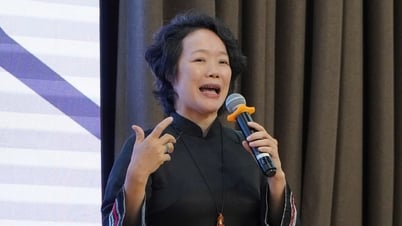

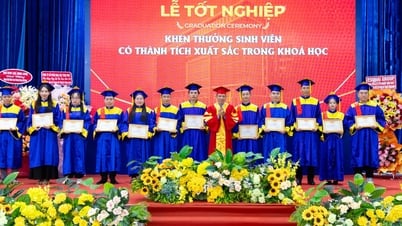

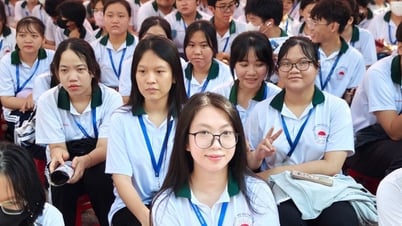


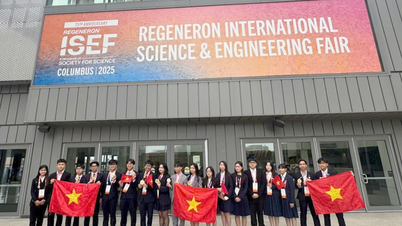






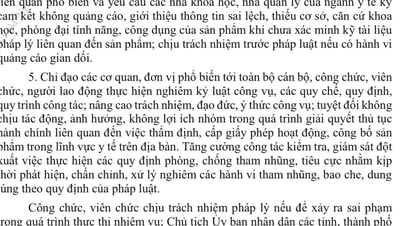

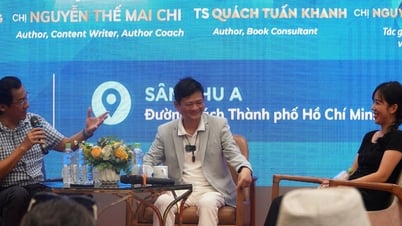


![[Photo] Nearly 3,000 students moved by stories about soldiers](https://vphoto.vietnam.vn/thumb/1200x675/vietnam/resource/IMAGE/2025/5/17/21da57c8241e42438b423eaa37215e0e)




















































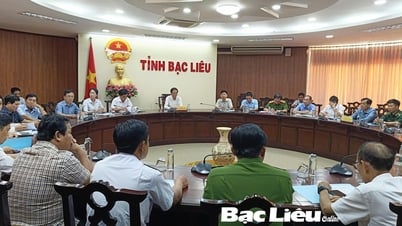


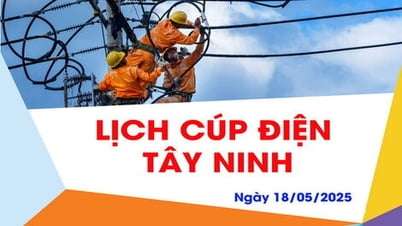



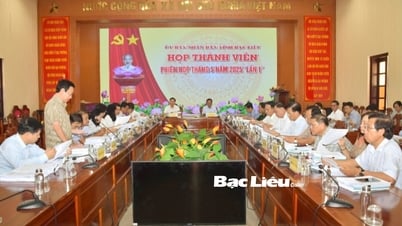













Comment (0)